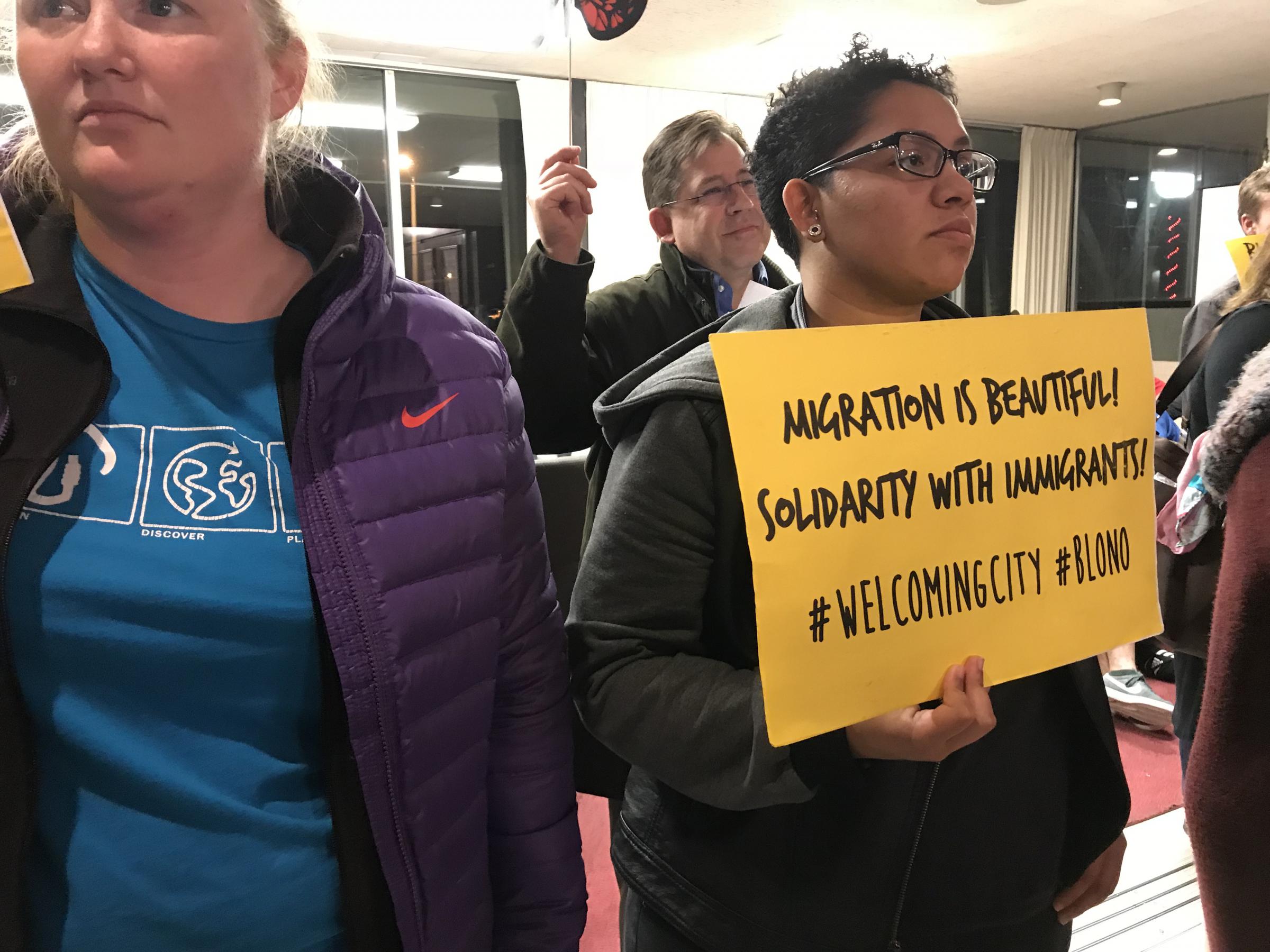Mike McCurdy and Charlie Schlenker
WGLT
The Bloomington and Normal city councils will likely see a draft of dual ordinances that would stop local police from working with federal immigration authorities on deportation—even if Normal’s city manager says it’s bad public policy.
Photo by Baylee Steelman/WGLT
Local civil rights advocates have lobbied for a so-called Welcoming City ordinance for months in the wake of President Donald Trump’s election. Nearly 300 people turned out for a recent Bloomington City Council meeting on the issue.
During a joint GLT's Sound Ideas interview alongside Bloomington Interim City Manager Steve Rasmussen, Normal City Manager Mark Peterson said he realizes undocumented immigrants might fear going to police out of worry they will be reported to Immigrations and Customs Enforcement, or ICE. But he said that’s only perception.
"There is virtually no collaboration with federal immigration officials," said Peterson. "There may be a situation out there that it's in our best interest to cooperate."
Peterson said it’s bad policy to create legislation refusing to cooperate with a federal agency. Rasmussen pointed out that any restrictive law on the books would have to be enforced. Peterson said such cooperation would have to be extremely specific about some criminal enterprise, such as human trafficking.
Peterson said he knows Mayor Chris Koos is surveying Normal Town Council members about their views on such an ordinance and expects an on-the-record expression from the council soon. Koos and Bloomington Mayor Tari Renner have talked to each other about the issue, according to the city managers.
Peterson said he is not aware of advocates for a Welcoming City ordinance approaching his staff. He said that an ordinance could be viewed as a solution in search of a problem.
"I don't support it. I think it's bad public policy to suggest that under no circumstances we won't deal with (a) federal agency," said Peterson. "I can tell you that as a matter of course we typically don't deal with immigration officials. It's rare. They don't call us. We don't call them."
Rasmussen thinks those in favor and against a Welcoming City ordinance will both be unhappy with the end result.
"Either side is going to want it to be more stringent on their side than the other side," said Rasmussen. "That makes it very, very difficult to craft something that walks the middle ground."


